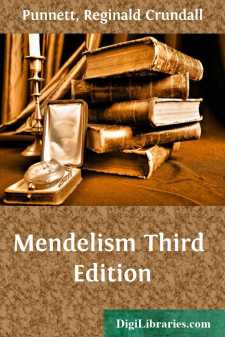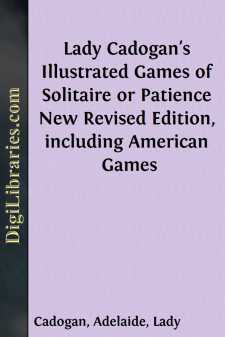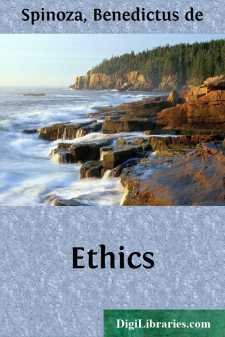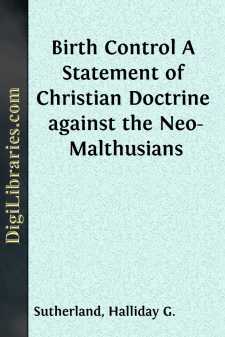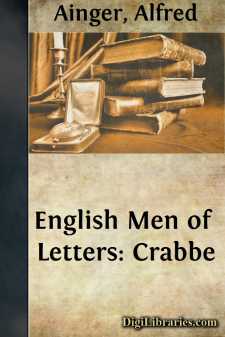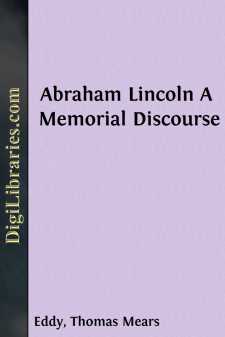Non-Classifiable
- Non-Classifiable 1768
Non-Classifiable Books
Sort by:
PREFACE A few years ago I published a short sketch of Mendel's discovery in heredity, and of some of the recent experiments which had arisen from it. Since then progress in these studies has been rapid, and the present account, though bearing the same title, has been completely rewritten. A number of illustrations have been added, and here I may acknowledge my indebtedness to Miss Wheldale for the...
more...
by:
Adelaide Cadogan
EXPLANATION OF THE TABLEAUX The blank spaces show where the foundation cards should be played during the deal. EXPLANATION OF TERMS Available cards. Those that are not "blocked" by other cards, i.e., not forbidden by the particular rules of each game, to be used. Released cards. Those which, by the removal of the cards that blocked them, have now become available. Suitable cards. Those whose...
more...
One might write continuously while he lived for or against Socialism and yet at the end of a long and misspent life have said nothing that others had not said before him. Nevertheless, new generations come on and have to learn about Socialism as they learn about other things, for there always have been and always will be Socialists. It is a habit of mind which becomes fixed in a certain number of each...
more...
I. By that which is self—caused, I mean that of which the essence involves existence, or that of which the nature is only conceivable as existent. II. A thing is called finite after its kind, when it can be limited by another thing of the same nature; for instance, a body is called finite because we always conceive another greater body. So, also, a thought is limited by another thought, but a body is...
more...
INTRODUCTION It was about a decade ago that Professor E.R.A. Seligman of Columbia University published his valuable work on the "Economic Interpretation of History," which gave a great impetus to the study, by historians, of the economic influences upon political and social development. Professor Seligman showed conclusively that one of the most potent forces in the growth of civilization has...
more...
CHAPTER I THE ESSENTIAL FALLACIES OF MALTHUSIAN TEACHING Section 1. MALTHUS AND THE NEO-MALTHUSIANS Birth control, in the sense of the prevention of pregnancy by chemical, mechanical, or other artificial means, is being widely advocated as a sure method of lessening poverty and of increasing the physical and mental health of the nation. It is, therefore, advisable to examine these claims and the...
more...
by:
Esther Singleton
THE FISHERMAN PRESENTING THE RINGTO THE DOGE GRADENIGO (BORDONE) THÉOPHILE GAUTIER This picture, which represents a gondolier returning the ring of Saint Mark to the Doge, treats of a legend, an episode of which Giorgione, as we shall see in the next hall, has also painted in a somewhat singular manner. Here is the story in a few words: One night while the gondolier was sleeping in his gondola,...
more...
by:
Esther Singleton
PRINCE KROPOTKINE The Russian Empire is a very extensive territory in eastern Europe and northern Asia, with an area exceeding 8,500,000 square miles, or one-sixth of the land surface of the globe (one twenty-third of its whole superficies). It is, however, but thinly peopled on the average, including only one-fourteenth of the inhabitants of the earth. It is almost entirely confined to the cold and...
more...
by:
Alfred Ainger
CHAPTER IEARLY LIFE IN ALDEBURGH(1754-1780)Two eminent English poets who must be reckoned moderns though each produced characteristic verse before the end of the eighteenth century, George Crabbe and William Wordsworth, have shared the common fate of those writers who, possessing a very moderate power of self-criticism, are apparently unable to discriminate between their good work and their bad. Both...
more...
MEMORIAL DISCOURSE. "In the day of adversity consider." It is the day of adversity. A great grief throws its shadow over heart and hearth and home. There is such a sorrow as this land never knew before; agony such as never until now wrung the heart of the nation. In mansion and cottage, alike, do the people bow themselves. We have been through the Red Sea of war, and across the weary, desert...
more...


